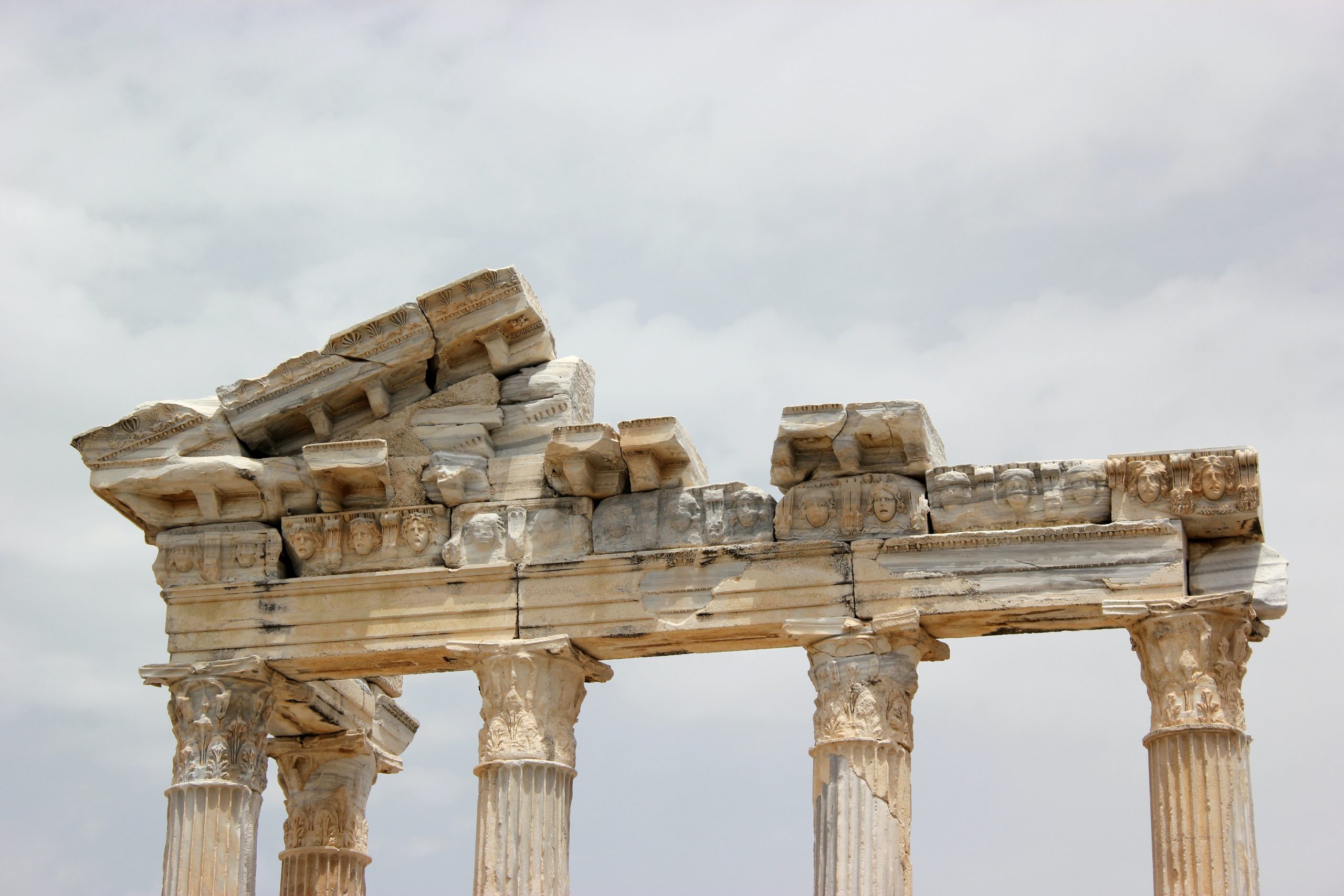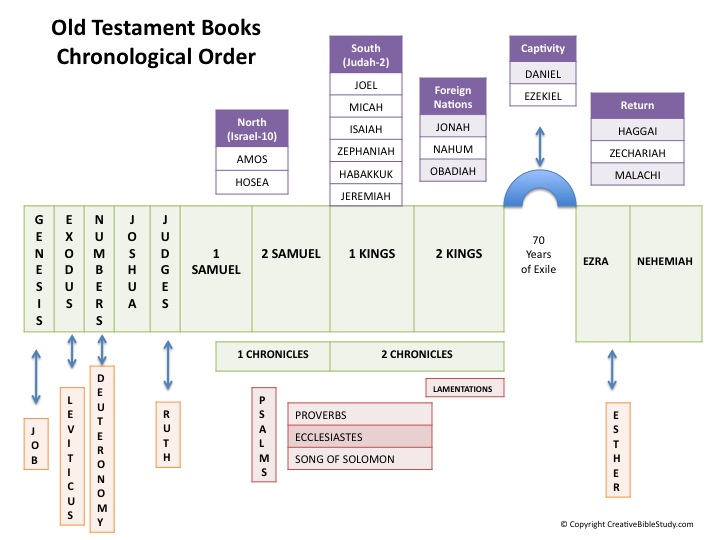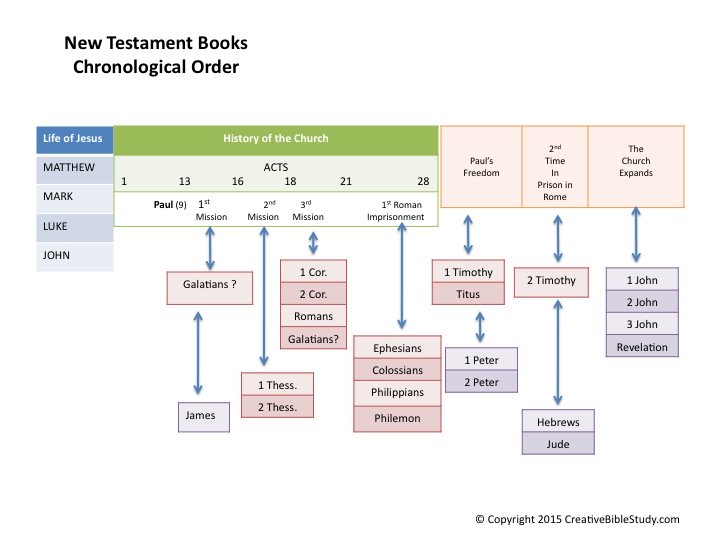On Sunday morning during my sermon, I said that considering the chronological order of the Bible was important when thinking through biblical theology. It is. It’s helpful to know what the men and women of the Bible knew of God during their lifetimes, when they lived in the span of salvation history, and what their world was like. To help you identify the chronological order of the books and events of the Bible, I then directed you to a resource in the Study Guide Appendix. Here’s the problem: no such resource is there. Sorry!
What I can do to make amends is point you to a good online resource. The PDFs below come from a website called creativebiblestudy.com. Disclaimer: I’m not familiar with this website and, therefore, cannot endorse any of the other resources at this time, but I found these accurate and. It can be immensely helpful to see what happened when and how the books of the Bible relate, chronologically, to the other books. As you will see when you review these and look at the table of contents of your Bible, things are not always chronological in the Bible. It’s often arranged by theme or genre. I hope this resource expands your knowledge of God’s Word.
Additionally, a list of Bible books by the date they were written can be found on Grace To You’s website here. And, you can see and participate in a chronological plan for reading through the Bible here on the Blue Letter Bible website. I may favor moving a date of writing or passage around here or there, but in large part, these are accurate and trustworthy according to a consensus of evangelical scholars.
If I can help you learn to study your Bible in any way, just ask!
Pastor Adam





This is very helpful Adam. Thank you. In the portion of your sermon dealing with “How to do Biblical Theology, you mentioned that when you have a question about meaning, work outward from its place in the Bible and not from your personal experience. I may have that quoted wrong, but could you more fully explain this strategy? Thank you!